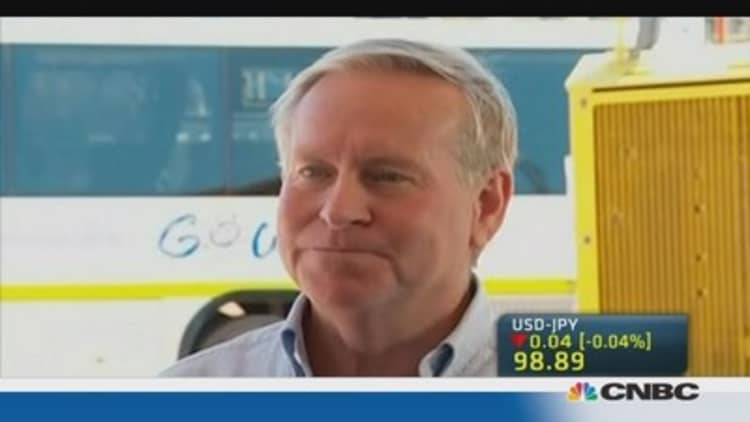Investment in Australia's resources sector continues to decline and hope is fading that non-mining sector investment can provide a significant boost to economic growth in the medium term, a report released on Tuesday shows.
The value of project commencements in the non-resources sector has moved sideways since 2008, while the value of those in the resources sector continues to decline, according to the report by Deloitte Access Economics.
(Read more: Australia lefts debt ceiling – no shutdown required)
It said that the total value of projects in its 'Investment Monitor' database fell by A$3.4 billion (US$3.3 billion) to A$873.7 billion in the three months to September, down 0.4 percent from the three months ending in June.
For the first time in a decade, the Investment Monitor has recorded a decline in the overall value of projects in its database for three consecutive quarters, Deloitte added.

A boom in the mining sector, fueled by demand from China, has underpinned Australia's economy over the past decade. But as mining investment has slowed, new sources of growth have remained elusive – posing a challenge to an economy that has not seen a recession in 22 years.
(Read more: Australia's election is over, now what for the economy?)
According to Deloitte, the value of planned projects in its database remained relatively constant in the September quarter as some large deletions were offset by new projects, but was down 12 percent from September 2012.
"It is clear that the investment in the resources sector which has underpinned growth for the best part of a decade is fading, and the economy will be relying on a more broad-based growth profile in the years ahead," Deloitte said. "However the composition of growth in the medium term – and, in particular, what the key driver of growth will be – remains less clear."
The Reserve Bank of Australia (RBA) has slashed interest rates eight times since late 2011 to bolster the non-resource sectors of the economy.
Economists anticipate slower growth as a transition away from mining-led growth takes place. Analysts polled by Reuters forecast Australia's economy to grow 2.5 percent this year, compared with 3.6 percent in 2012.
(Read more: Australia central bank keeps door open to cut)
Deloitte said that in the uncertain period of economic transition, spending on infrastructure could play an important role.
According to reports from the Australian media, the Liberal-National Party coalition that swept to power last month is considering ramping up spending on infrastructure projects.
"In a phase in which business investment spending is looking increasingly shaky, and support to economic activity is required, a more active public sector role in financing and supporting infrastructure projects should be welcomed," Deloitte said.
—By CNBC.Com's Dhara Ranasinghe; Follow her on Twitter @DharaCNBC



